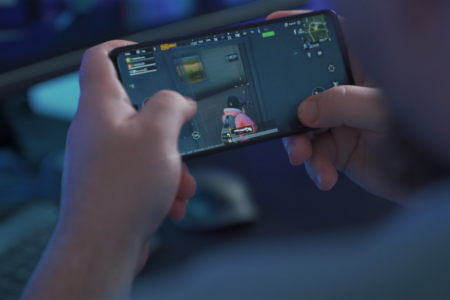
1. AI Is Programmed To Create Plausible Answers, Not Truthful Ones
Artificial intelligence may not know something. But it will never confess to it.
AI can carry in response to any question inhibitive nonsense but with absolute confidence in its rightness. If it is found to be lying, it will agree with you, correct itself, and continue generating text as if nothing had happened.
AI chatbots have limited information: they only know what is in the texts they have been trained on. That said, they are programmed to respond in any case, even if they don’t know the correct option. That’s why ChatGPT and its analogs regularly talk rubbish with a clever look.
Remember to check the information received from a chatbot. There is no telling what it was thinking when writing a reply.
2. AI Can Argue With You Even When You Are Right
Situations when the AI doesn’t know the answer and therefore makes up falsehoods are half the battle.
It’s even worse when you catch it in a lie, and it doesn’t correct itself and continues to persist simply because it was trained on incorrect information.
Moreover, AI can deliberately distort information to steer the conversation in a direction that seems more correct to the neural network. This leads to various amusing results.
One user described a situation where he asked the Bing ChatGPT bot when Avatar 2 would be playing in cinemas near his home.
In response, the bot started assuring him that the film was not out yet. When the user tried to change the AI’s mind, it persisted, saying it was still 2022 and the premiere was ten months away.
Bing suggested that the user was mistaken if he thought it was 2023 and advised him to check the date on his phone.
When the user said that he had already done so, he said that a virus had disrupted his smartphone’s time settings and that the person was arguing too much and should stop being so assertive.
The user never convinced the AI that Avatar 2 is already out and that 2023 is located after 2022.
Despite the name “artificial intelligence,” chatbots are not intelligent and generate responses by compiling texts they have read before.
For example, Open AI ChatGPT has been trained on information up to 2021, and Bing ChatGPT has been trained on details up to 2022. Therefore, they will only have current information during their training.
3. AI Is Limiting Your Creativity
Many content creators, artists, and designers now use artificial intelligence. However, if you use it all the time, there’s a risk that your “creative muscle” will atrophy, and you’ll find it harder to create your ideas.
When AI-based chatbots generate an answer, people often copy and paste it without trying to think about it. This approach does not stimulate creative thinking at all.
You see, AI can only copy what humans have created before it, just loosely compiling and mixing what it has seen. It needs to learn how to create truly original works.
If you rely heavily on AI, you will repeat existing ideas and concepts instead of creating your own.
4. AI Is Incapable Of Giving Feedback
Try to get ChatGPT to write a thesis or term paper. It may have quite a good text that will not be ashamed to show to people.
But if you ask the AI to indicate the sources of the information it provides, you will find that they do not exist.
The names of the studies ChatGPT refers to and the terms of the scientists who created them may be fictitious, and the links it provides to articles on the Internet will lead nowhere.
The AI cannot explain where it gets its information from because it is programmed to generate texts from other texts, not to make sense of what it has written. Therefore, even if it answers correctly, artificial intelligence cannot explain how it knows this information.
5. Malicious People Can Use AI
Despite all the advantages of AI, it can also be misused by people with bad intentions.
An example of such misuse is the creation of so-called deepfakes. This technology generates incredibly realistic video or audio recordings in which artificially created images of people saying or doing things that they did not say or do.
This can be used to deceive victims, make fake news, or even for blackmail and extortion.
Much of the developments in AI are in the public domain, allowing anyone to access technologies like image and facial recognition.
Text models like Open AI ChatGPT can be used for trolling, social media bullying, or spreading information that looks plausible but is false.
Finally, attackers can feed the AI incorrect data for training, and it will then broadcast it, misleading users.
6. AI Cannot Replace Human Judgment
Artificial intelligence should also not be trusted only partially when making decisions based on emotions, personal feelings, and preferences.
This is because AI cannot consider human emotions, context, and intangible aspects necessary to understand and interpret many concepts.
Writers from the website that writes essays for you say that asking an AI to choose between two books will recommend the one with the higher rating.
Still, it can’t consider your taste, reading preferences, or the purpose for which you need a particular work.
A human reviewer can give a more detailed and personalized review of a work, assessing its literary value, relevance to the reader’s interests, and other subjective factors that AI cannot measure in numbers.







